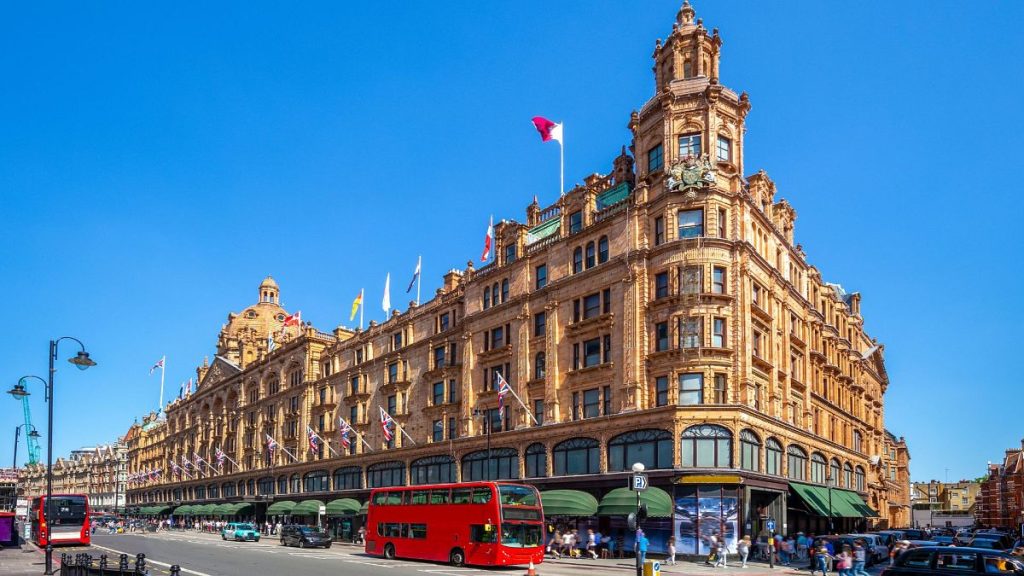Harrods, the iconic London luxury department store, has implemented a mandatory £1 cover charge for all diners in its cafes and restaurants. This new fee is in addition to the existing optional 12.5% service charge. The company justifies the cover charge as a means to maintain competitive menu pricing while upholding its high standard of service, a practice they claim is common among upscale restaurants in the UK. Harrods argues the charge helps them maintain the premium ambiance of their dining establishments, particularly during peak business periods. However, the timing of the introduction coincides with planned Christmas strikes by over 100 Harrods employees, raising concerns about the true motive behind the new fee. The striking workers, represented by the United Voices of the World union (UVW), are demanding pay raises above the Retail Price Index (RPI) inflation rate, a £500 Christmas bonus, and the elimination of the cover charge or its redistribution to restaurant and kitchen staff.
The cover charge’s implementation follows recent UK legislation requiring businesses to pass on all tips directly to employees. This legislation prevents employers from retaining any portion of tips, empowering workers to seek redress through employment tribunals if they believe their tips are being unfairly withheld. Harrods maintains that the cover charge is unrelated to this legislation, highlighting that they have been distributing 100% of service charges to their staff since January 2022, well before the legislation was enacted. Despite this claim, there are concerns that the cover charge might discourage customers from tipping, potentially impacting employee earnings. This concern contributes to the ongoing tension between Harrods management and its staff, further fueling the planned strikes.
The timing of these disputes is particularly sensitive for Harrods, as the company is currently grappling with the fallout from serious allegations against its former owner, Mohamed Al Fayed. A recent BBC documentary brought to light accusations of sexual misconduct by Fayed against numerous former employees. Police investigations now suggest that Fayed may have abused and raped over a hundred women and girls over several decades. Although Fayed passed away in 2023 without facing criminal charges, the allegations have severely tarnished Harrods’ image and created an uncomfortable climate for the company.
Harrods has publicly condemned Fayed’s alleged actions, expressing its disgust at the abuse of power. The company emphasizes that these were the actions of an individual and not reflective of the current Harrods organization, which was sold in 2010. However, the timing of these revelations alongside the employee strikes creates a challenging public relations landscape for the luxury retailer. The company is attempting to distance itself from its controversial former owner while simultaneously addressing internal conflicts and justifying new charges to its customers.
The planned Christmas strikes are a significant development in the ongoing dispute between Harrods management and its employees. The UVW, representing the workers, emphasizes the overwhelming support for the strike action, with 95% of participating employees voting in favor. The Christmas period is crucial for retail businesses, and the strikes could significantly impact Harrods’ sales and operations during this critical time. The union’s demands, including the pay raise, bonus, and addressing the cover charge, are central to the dispute and will likely be key points of negotiation as Harrods attempts to avert the disruption caused by the strikes.
The confluence of these events – the introduction of the cover charge, the planned Christmas strikes, and the resurfacing of allegations against Mohamed Al Fayed – presents a complex and challenging situation for Harrods. The company must navigate these issues carefully, balancing the need to maintain its image as a luxury retailer with addressing the concerns of its workforce and the public. The outcome of the strikes and the long-term impact of the cover charge remain uncertain, but these events undoubtedly represent a pivotal moment for Harrods. The company’s response will shape its relationship with its employees and its customers, and significantly influence its trajectory in the years to come.














